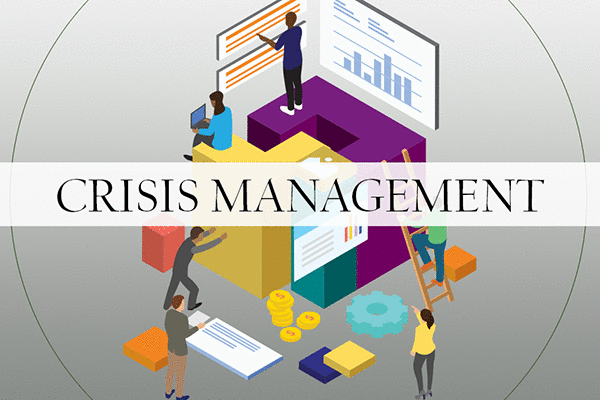What is crisis management?
Crisis Management is the process of controlling, reducing, or eliminating threats that involve damage to your company or its image. A crisis occurs when a problem concerning people’s health, security, or well-being arises. It can be anything from a fire at your company’s factory, mysterious deaths and illnesses among the employees, or even a PR nightmare such as child pornography charges against an executive.
Why is crisis management important?
As a business, you always have to be prepared for difficult situations that your company might face. Handling a crisis is key to your company’s success and its future. To prevent minor problems from turning into major ones, you must always keep things under control. From damage control, after an incident strikes to stopping an ongoing problem from worsening to averting future problems by changing business practices, you must keep the situation under control at all times.
How to identify a crisis within your company?
A crisis can occur at any time, and shutting them down early is better than dealing with a problem that has grown out of hand. You should set up a system to monitor all aspects of your company and take action before a situation gets out of control.
Recognizing a crisis is the first step. Some signs of a problem include:
-Increased staff turnover, especially among key personnel.
-Employees stay home from work for no apparent reason.
-Employee absenteeism and tardiness increase faster than usual or out of proportion to other employees. This indicates an underlying problem is escalating.
How do you control a crisis?
1.Be quick to identify the problem
One of the most important aspects of managing a crisis is to detect it early on. If you don’t, you could take longer and more costly steps that are not necessary. For example, if you’re selling imported goods duty-free but forgot to put “duty-free” on the packaging and customs officials hold your shipment for inspection. If you quickly reach out and explain the situation, the issue can be resolved more easily than if you waited several days before contacting them.
2. Put a face to the crisis
You must put a face to any problem your company is facing, such as announcing exactly who is involved and what the company will do to resolve the issue at hand. For example, if you’re dealing with a PR crisis, such as how people perceive your company’s image and reputation, you must explain what steps your company plans on taking to recover from this. You can’t sit back and wait for the problem to go away on its own.
3. Take responsibility
During a crisis management period, you must take responsibility for your role and accept that you made a mistake or something went wrong. For example, if one of your employees posted inappropriate content to social media and people started making fun of it, you must acknowledge their behavior and inform the public that the employee was reprimanded.
4. Be honest
You must be honest and transparent when dealing with a crisis, especially if it’s a public issue, such as your company selling contaminated food products to customers. For example, you should immediately apologize for the inconvenience and offer compensation. However, only state the facts and don’t make promises you can’t keep.
How do you prevent a crisis from escalating?
1. Be on the look out –
A great way to prevent a crisis is to constantly monitor and be aware of all aspects of your business. For example, if you’re selling clothing and you notice that inventory levels are running low, it might be time to order more merchandise before your customers start complaining about the lack of selection. This way, no matter what happens, you can respond quickly and efficiently to avoid a crisis from occurring.
2. Take action –
If you see that your staff turnover is going up or employee absenteeism is higher than usual for your organization, take action before the problem worsens. For example, this could mean holding a meeting with all employees to address the underlying issue that’s causing them to look for other jobs.










![Anso FG Reviews: UPDATED 2024 [ansofg.com] Anso FG Reviews UPDATED 2024 [ansofg.com]](/wp-content/uploads/2023/12/Anso-FG-Reviews-UPDATED-2024-ansofg.com_-100x70.png)







